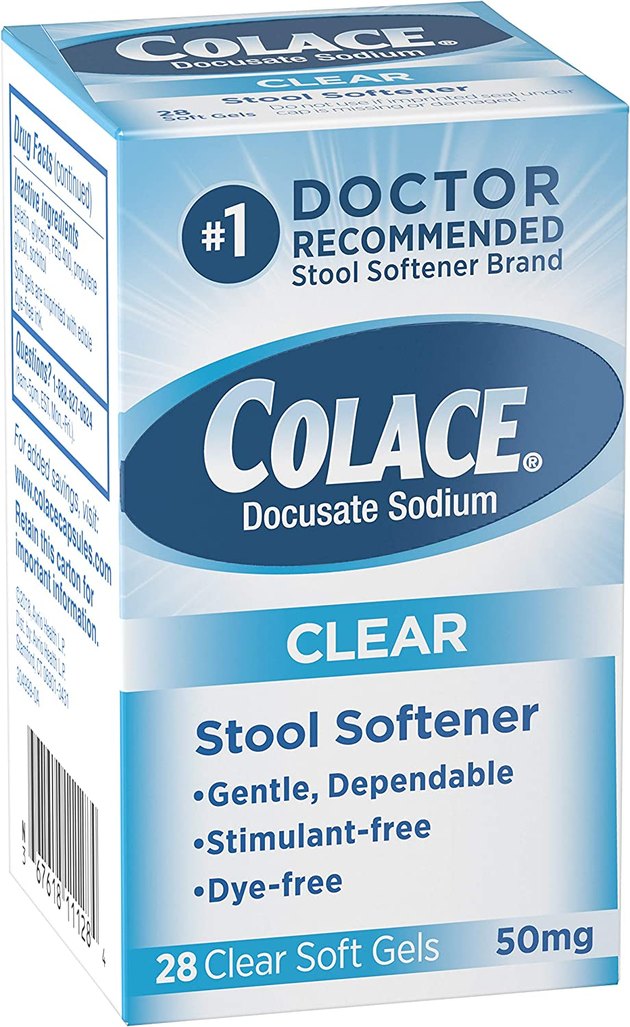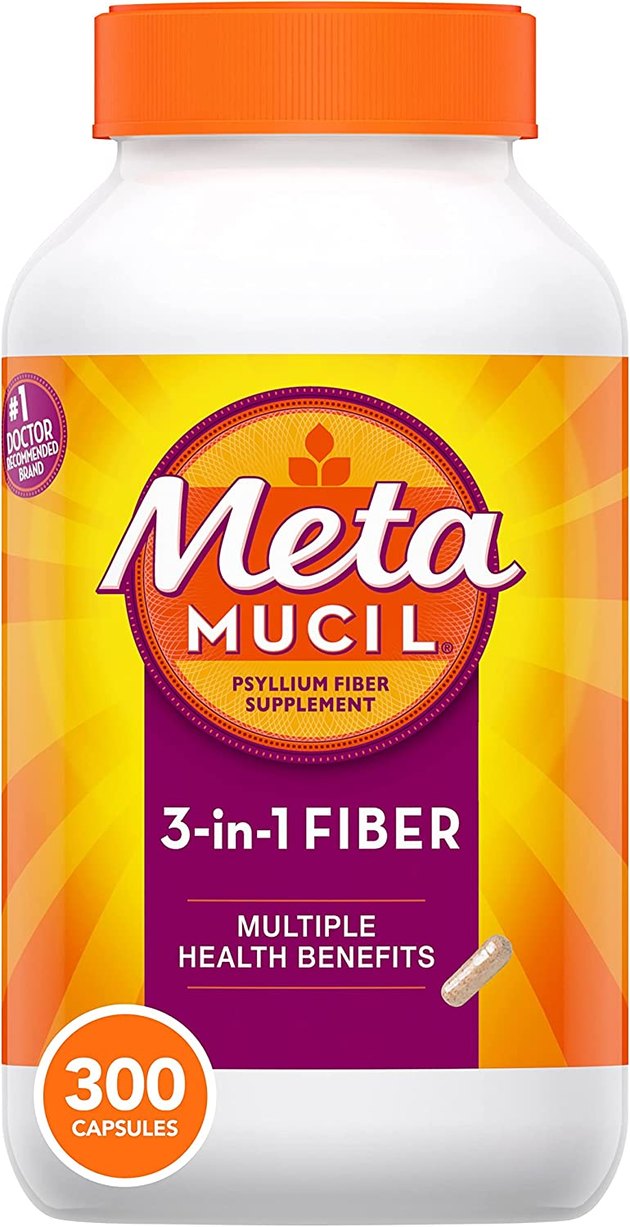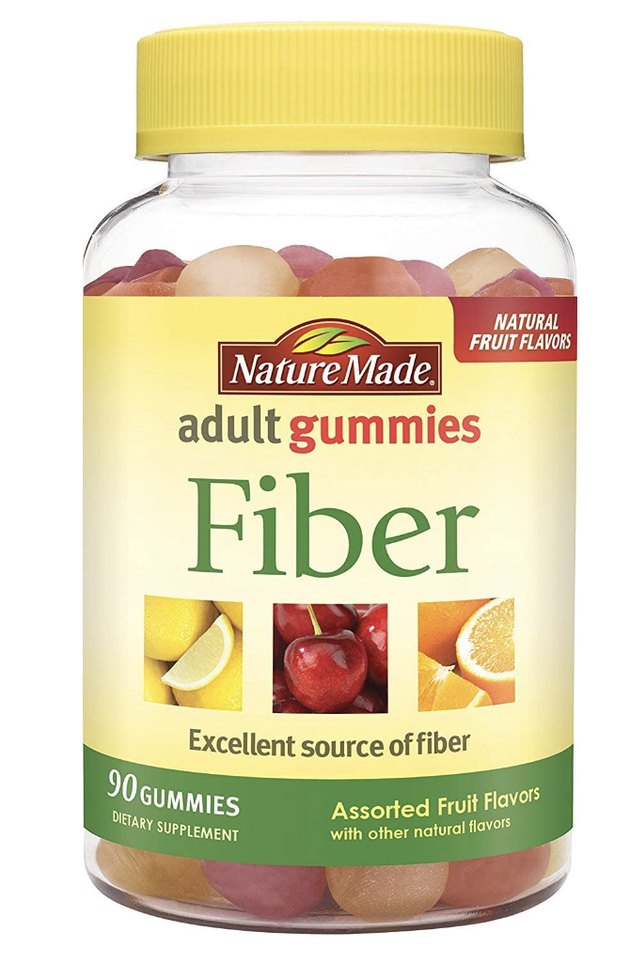
If you've recently had a baby and have noticed your bowels aren't moving as regularly as they used to, you're not alone.
"Constipation is common in individuals who are breastfeeding and in the postpartum period," says Henry Jen, MD, a board-certified gastroenterologist at Northwell Long Island Jewish Forest Hills in New York.
Video of the Day
Video of the Day
Postpartum constipation is no fun at all. If you are breastfeeding your little one, you may be curious if breastfeeding is making you constipated, and if there's anything about your breastfeeding routine or diet that you need to tweak. You may also be wondering what you can take for constipation while breastfeeding.
We've got you covered. Here, we tapped gastroenterologists, midwives and lactation consultants for their best advice on managing constipation while breastfeeding and how to get some much-need relief.
Why Breastfeeding Can Change Your Bowel Movements
So, what's the deal? Can breastfeeding affect your bowel movements? And if so, how?
"Breastfeeding itself does not directly cause constipation, but there are a lot of changes that happen when a person starts breastfeeding that could contribute to constipation," says Andrea Braden, MD, IBCLC, a lactation consultant, breastfeeding medicine specialist and CEO & co-founder of Lybbie.
These include:
1. You Might Be Dehydrated
First of all, Dr. Braden says, breastfeeding requires you to eat an additional 330 to 400 calories a day and basically double your water intake.
If you aren't drinking enough water, you will be in a state of dehydration, which can contribute to constipation, she says.
2. It's a Medication or Supplement Side Effect
Additionally, Dr. Braden says, certain medications and supplements you may have been given postpartum are notorious for causing constipation. These include iron supplements and narcotic pain medications, which are often given to people who've had C-sections.
3. You're Avoiding Going Number 2
Speaking of pain, if you've had a C-section or a vaginal repair, you may be experiencing pain during bowel movements as you recover. That may inadvertently cause you to avoid going to the bathroom, "which can then lead to worsening constipation," Dr. Braden says.
4. You're Just Adjusting to Things
Finally, the lifestyle changes and life stressors typically experienced while caring for a baby can contribute to constipation, Dr. Jen says.
"Caring for a newborn naturally leads to many disruptions to our daily routines, many of which help to regulate our bowel habits," he says. "Specifically, changes in our sleep cycles, decreased exercise and increased stress can all contribute to constipation during this time."
Tips and Remedies for Constipation While Breastfeeding
Sometimes just making a few changes to your daily routine can make a difference if you are constipated while breastfeeding. Here are some expert tips:
1. Hydrate, Hydrate, Hydrate
One of the reasons constipation is so common postpartum is because breastfeeding parents tend to get easily dehydrated, says Kristin Mallon, CNM, RN, certified nurse-midwife and co-founder and CEO at FemGevity.
"Water makes milk, and so a lot of water that you're consuming while breastfeeding is going to the production of breastmilk and then not going to passing stool through the body," Mallon says. "One of the best ways to avoid constipation is the very obvious way, which is to drink a ton of water."
Dr. Braden recommends breastfeeding parents consume the equivalent of about 16 cups of water per day. This could come from beverages or hydrating foods, such as fruit and soups.
Mallon reminds parents that water isn't the only way to get your hydration needs met. "Sometimes we get water fatigue and we need to drink some liquids with a little bit of flavor," she says.
In that case, consider alternatives like seltzer, juice, tea, coconut water or smoothies.
2. Increase Your Fiber Intake
Eating fiber-rich food can help a ton when you're dealing with constipation, says David B. Purow, MD, gastroenterologist at Northwell Health.
His top recommendations? Prunes, whole grains (think: oats, brown rice, bulgur) and beans work well to improve constipation, he says. Fruits and veggies are also a good choice.
According to the 2020-2025 Dietary Guidelines for Americans, adults should get between 22 and 38 grams of fiber per day depending on body size and activity level.
It's important to take it gradually when introducing high-fiber foods, though, as all people are different when it comes to how much fiber is the right amount.
"Proper amounts of these will vary depending on several different factors, so trials of titrating different amounts is most helpful," Dr. Purow says.
3. Get Your Body Moving
If you're caring for a newborn and recovering from childbirth, you're probably not thinking much about exercise. But lack of exercise can slow down your bowels.
Once you're cleared by your doctor or midwife, Dr. Jen recommends adding in some regular movement in your day. "Even a gentle walk can stimulate the bowels," he says.
According to the American College of Obstetricians and Gynecologists (ACOG), people who've had healthy pregnancies and uncomplicated vaginal deliveries can usually begin exercising within a few days after childbirth, or as soon as they feel ready.
If you had a C-section or a complicated vaginal birth, you should ask your health care provider when you can start exercising again, ACOG advises.
Either way, they recommend you take things slowly and gently at first, and stop exercising if you feel any discomfort.
4. Don't Hold It
One overlooked cause of constipation is delaying trips to the bathroom — and this is something that might happen when you are busy feeding your baby.
"If you need to go, then go," Dr. Jen advises. "Keeping your bowel movements in when you need to go can train your rectal muscles to stay tight, leading to straining and difficulty passing stools in the future."
Dr. Jen says if you're dealing with postpartum constipation, don't be afraid to pass your baby off to a family member or your partner and make a beeline to the bathroom when you feel the urge.
Breastfeeding-Safe Medications and Supplements for Constipation
Sometimes at-home methods aren't enough to get your bowels moving and you may be wondering if taking medications or supplements for constipation are safe during breastfeeding. After all, you don't want to take anything that may be harmful to your baby.
There's some good news here, according to Dr. Braden: Most medications and supplements for constipation are OK in breastfeeding people.
Of course, you should always consult with your health care provider before taking any medication or supplement.
You can also consider bookmarking LactMed, which is a database published by the National Library of Medicine that lists various medications and supplements and their effect on breastfeeding.
This is what our experts say about medications and supplements for constipation while breastfeeding:
1. Stool Softeners
Stool softeners work by softening your stool, making it easier to release.
"I typically recommend taking an over-the-counter stool softener (like Colace) twice a day to help prevent constipation immediately after delivery," says Dr. Braden.
According to LactMed, the main ingredient in Colace, docusate, is only minimally absorbed from your digestive tract and is therefore unlikely to be found in breastmilk.
2. Laxatives
Laxatives are medications that stimulate your bowel to empty, and you can safely use most laxatives while breastfeeding. "Over-the-counter laxatives are great for rapid relief of severe constipation," says Dr. Braden.
She recommends Dulcolax and MiraLax to her breastfeeding parents experiencing constipation. The active ingredients in these are bisacodyl and polyethylene glycol, respectively, both of which are unlikely to be found in breastmilk, according to LactMed.
3. Fiber Supplements
Sometimes it's not easy to get your daily fiber recommendation from food alone, especially if you're busy and eating on-the-go.
Fiber supplements like Metamucil and other psyllium fiber-based supplements are safe to take while breastfeeding, Mallon says, and they can help you clear up your constipation if dietary changes alone don't work.
Dr. Purow says fiber gummies are another option for fiber supplementation while breastfeeding, and as a bonus, they're usually pretty tasty.
When to See a Doctor
You might be wondering if constipation while breastfeeding ever requires a visit to a health care provider.
James J. Lee MD, a gastroenterologist at Providence St Joseph Hospital in Orange, California, says you should seek medical attention for the following symptoms:
- Constipation that lasts longer than two weeks
- Severe pain
- Sudden distention of the abdomen
- Persistent bleeding
- Significant weight loss
Thankfully, most cases of constipation while breastfeeding are annoying and uncomfortable but resolve in time, especially with at-home measures or breastfeeding-safe medication or fiber supplements.
Still, you should never hesitate to reach out to a health care provider if you have further questions or concerns.
- Office of Disease Prevention and Health Promotion: "2020-2025 Dietary Guidelines for Americans"
- American College of Obstetricians and Gynecologist (ACOG): Exercise After Pregnancy
- Centers for Disease Control and Prevention (CDC): Maternal Diet
- National Institutes of Health: Rough Up Your Diet
- National Library of Medicine: Bisacodyl
- National Library of Medicine: Docusate
- National Library of Medicine: Magnesium Citrate
- National Library of Medicine: Polyethylene Glycol
- National Library of Medicine: Psyllium
Was this article helpful?
150 Characters Max
0/150
Thank you for sharing!
Thank you for your feedback!
Is this an emergency? If you are experiencing serious medical symptoms, please see the National Library of Medicine’s list of signs you need emergency medical attention or call 911.




